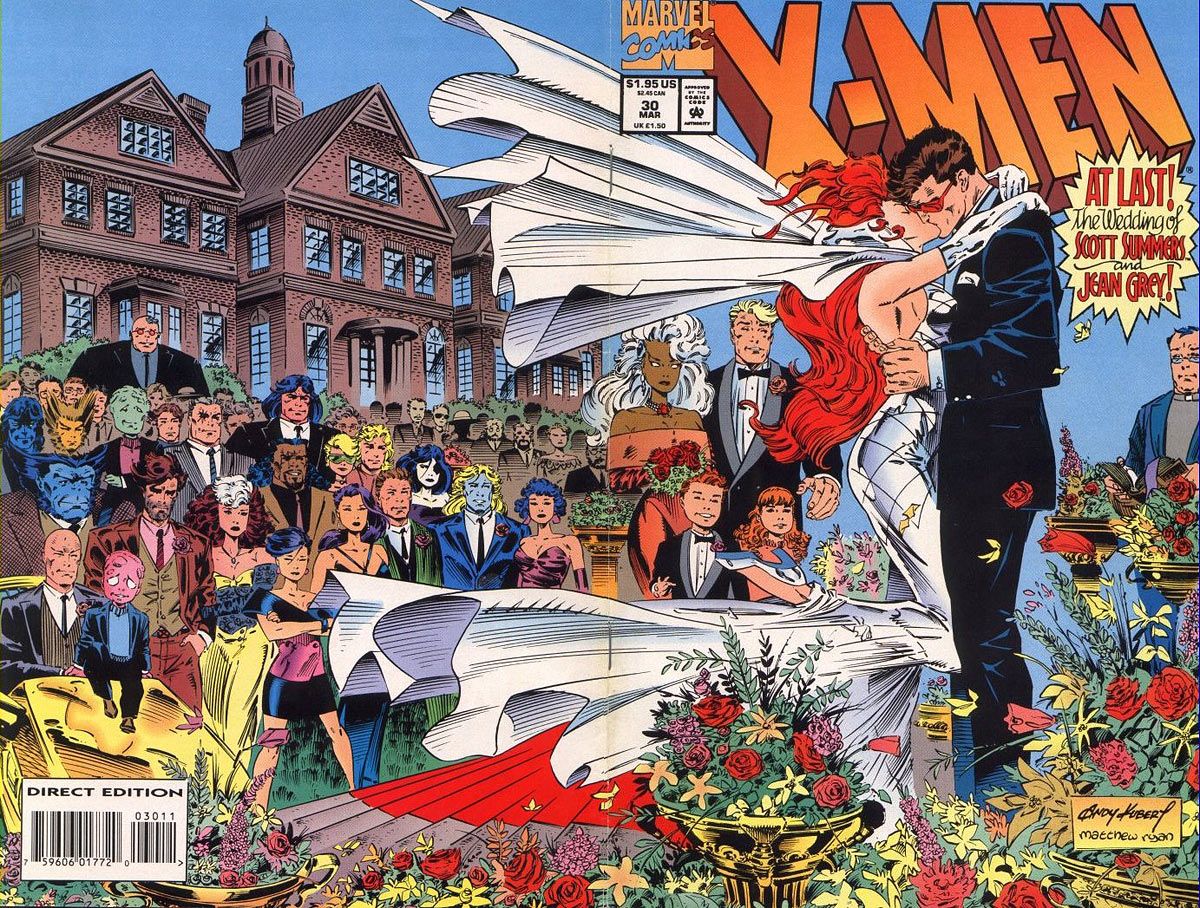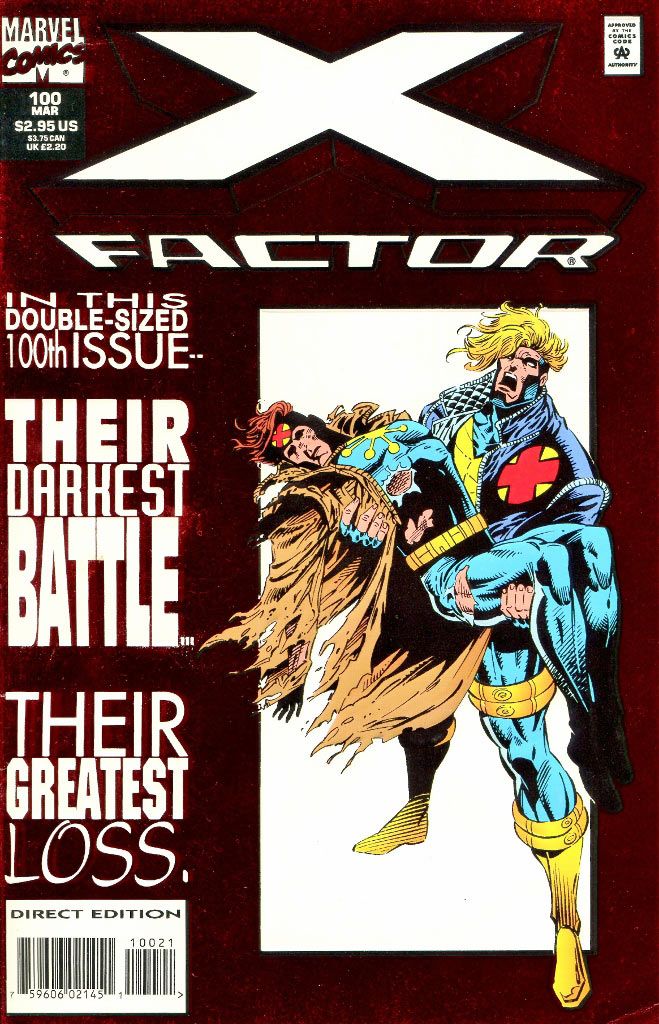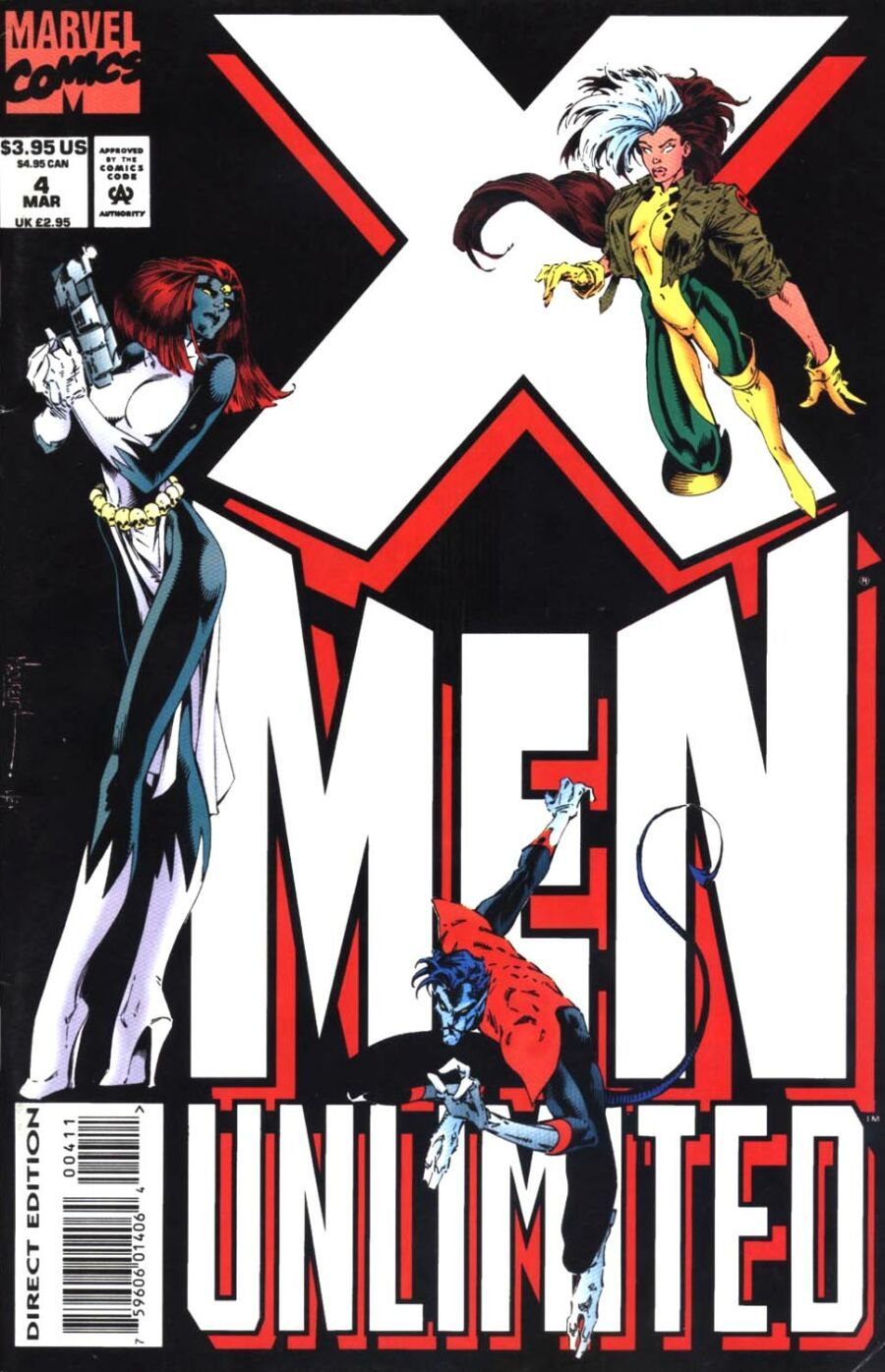"Has it really been twenty years?" As a comic book reader who got his start thanks to the old "X-Men" animated series, I find myself asking that question a lot lately. A year ago, January 2013, marked my 20th anniversary of reading X-Men comics, which means that my hobby could now order a drink at Harry's Hideaway.
Even though I know there are plenty of readers out there that have been around for far longer than I have, I sometimes feel like an old fogey when I read the reactions readers have to comics being published today. To them, every death is permanent, every marriage unbreakable and every new revelation a shocker. While I will never think that a comic book is just cause for death threats (oh, if only I could see the look on those Dan Slott haters' faces when Peter Parker's return was announced!), I just need to take a look twenty years in the past to understand how new readers feel now.
This train of thinking started when I decided to look up the comics that came out in January 1994 (cover dated March, because superhero comics can never be straightforward) and noticed that that particular month contained three huge issues for nine-year-old Brett. Things were never going to be the same again, guys! In the span of one month, Cyclops and Jean Grey tied the knot in "X-Men" #30, Multiple Man died in "X-Factor" #100" and Nightcrawler discovered his true parentage in "X-Men Unlimited" #4. Boy, am I glad my mom decided to drop the $9 on those three double-sized issues! Sidenote: let those prices sink in for a second.
Even though I'd only been reading X-Men comics for ten-ish months at this point, I was committed. To paint the I-can't-believe-how-much-time-has-passed picture accurately, I had to learn everything I knew about the X-Men from the backs of trading cards and commemorative issues of "Wizard" magazine -- two things that don't exist today, at least not with their previous prominence. I absorbed every bit of knowledge I could: Cypher was one of the few dead characters, Magik used to be a teenage sorceress, Meggan was the actual codename of an actual superhero. I'd been on the Cyclops and Jean Grey relationship rollercoaster for just under a year, but you better believe I let out an exasperated "Finally!" when Jean popped the question in "Uncanny X-Men" #308. Yeah, nine-year-old me was super excited to read a superhero wedding comic. And no, I did not know about my homosexuality until college.
"X-Men" #30 by Fabian Nicieza, Andy Kubert, Matt Ryan, Bill Oakley and Joe Rosas marked my first exposure to all the comic book wedding cliches. The wraparound cover featured a 'Where's Waldo' of nearly every X-Character from the time, the story consisted of vignettes ranging from sincerely charming to sincerely sincere and the characters' complicated histories were winkingly acknowledged. The issue did not contain a villain's arrival, though, thanks to Wolverine expertly dealing with Sabretooth's dastardly plotting. The wedding went on uninterrupted.
Pre-adolescent me did not consider the ongoing grind of comics, how they have to utilize the illusion of change storytelling technique in order to maintain a long-running status quo. He wasn't concerned about Cyclops or Jean Grey getting written into a corner. He didn't even entertain the notion that the relationship would devolve into a psychic affair with another telepath and yet another tragic death. Pre-adolescent me hadn't been reading long enough to know how comics work, and he was super excited about this.
The first spoiler I ever encountered was for "X-Factor" #100. When you're in the fourth grade, you can't really control when you buy your comics. And when you were in the fourth grade in early 1994 in suburban Tennessee, you did most of your comic shopping at Waldenbooks and Kroger's; trips to an actual comic book store like Great Escape or Box Seat Cards and Comics were few and far between. So yes, I knew that my favorite character, the wisecracking Multiple Man, had been sick for the past few issues, but not even the story of his worsening condition could alter when my parents needed to go buy groceries. Enter: the spoiler.
A classmate that knew I loved Multiple Man dropped the bombshell on me: Jamie Madrox died in "X-Factor" #100. I don't really remember how the rest played out, for my devastation has reduced what happened next to a blur in my mind, but I either read his copy of the issue right then, or had to hunt it down myself. Either way, this was the first comic book death that mattered to me. J. M. DeMatteis, Jan Duursema, Al Milgrom, Richard Starkings and Glynis Oliver punched nine year old me in the gut, and it was hard to get over.
To cope, I took all of my favorite issues of "X-Factor" and copied my favorite panels onto notebook paper, creating a commemorative, literally one-of-a-kind memorial comic for James Arthur Madrox. Even though I vaguely understood that comic book deaths were reversed -- I had just lived through Magneto's quick resurrection in "Fatal Attractions" -- I had no reason to believe that was true for every death. Pre-adolescent me hadn't been reading long enough to know how comics work, and he was super upset about this.
Thanks to my voracious appetite for all things X-Men, I had become very familiar with Nightcrawler's importance to the overall X-Canon, even if he had been relegated to starring in "Excalibur" -- the comic that even a pretty completist kid like myself deemed skippable. I got my Kurt Wagner fix in "X-Men Classic" reprints and the few back issues I had excitedly purchased. Nightcrawler wasn't Multiple Man, but I liked him enough to dress up for him for Halloween and write a letter to Toy Biz asking why Nightcrawler action figures were impossible to find. So when "X-Men Unlimited" #4 by Scott Lobdell, Richard Bennett, Steve Moncuse, Dave Sharpe and Glynis Oliver hit, I could tell just how big of a deal it was.
Up until that point, the issue of Nightcrawler's true parentage had been in question since the first time he crossed paths with Mystique, way back in 1981's "Uncanny X-Men" #142. Little kid me also knew that, because he had a trade paperback that contained "Days of Future Past" in it, and he was shocked to see a plot point from years ago addressed in a new comic. They did it! They revealed that Mystique was Nightcrawler's mother! And on top of that, Graydon Creed was also her son! And the issue showed Rogue as a kid! I can't think of another comic I read before this one that was so concerned with continuity. Pre-adolescent me hadn't been reading long enough to know how comics work, and his mind was blown when this happened.
What I'm trying to get at is that these three issues meant a lot to me when I first started reading comics. Time has not been that kind to two of them quality-wise (I still stand behind "X-Men" #30 to this day, come at me!), and all of the big events from these issues have been erased or amended. Scott and Jean did not end happily ever after, Multiple Man turned out to be just fine and then headlined his own team book for almost a decade, and Chuck Austen stuck a devil named Azazel somewhere in between the pages of "X-Men Unlimited" #4. These were huge issues to me, and now they're just rarely referenced continuity blips. That doesn't erase how much they meant to me twenty years ago.
I roll my eyes at a lot of the freak-outs and worries people have at comics that come out right now -- and freak-outs that turn to death threats are never excusable. But it helps to remember where I come from, and that the reasonable and measured freak-outs are by products of the excitement and passion that new readers feel towards their heroes. Some responses go too far, yes, and the Internet provides them way too big of a platform; any complaining I did about these three issues was kept in my fourth grade classroom. But after revisiting these comics and getting back in touch with the reader I used to be, I hope that I can bring a little bit of that old excitement back to my comic reading experience.
Brett White is a comedian living in New York City. He co-hosts the podcast Matt & Brett Love Comics and is a writer for the comedy podcast Left Handed Radio. His opinions can be consumed in bite-sized morsels on Twitter (@brettwhite).



